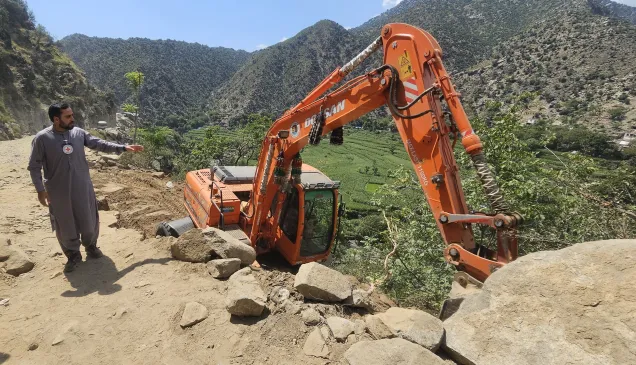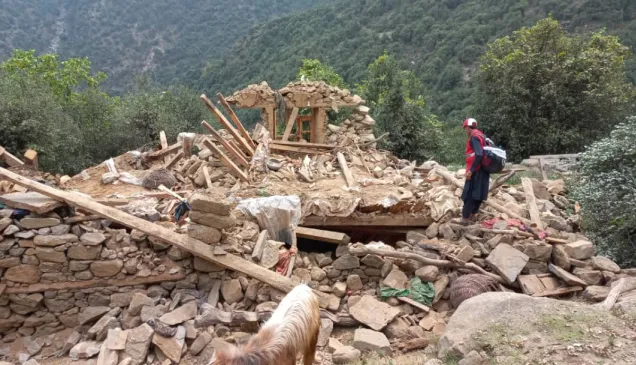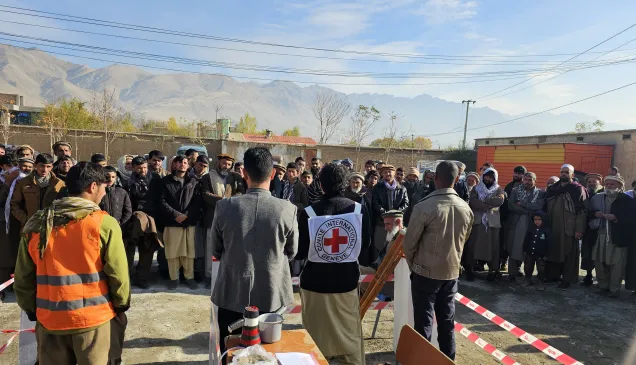Afeganistão: aumento da violência contra a assistência à saúde em meio à COVID-19 ameaça milhões de pessoas
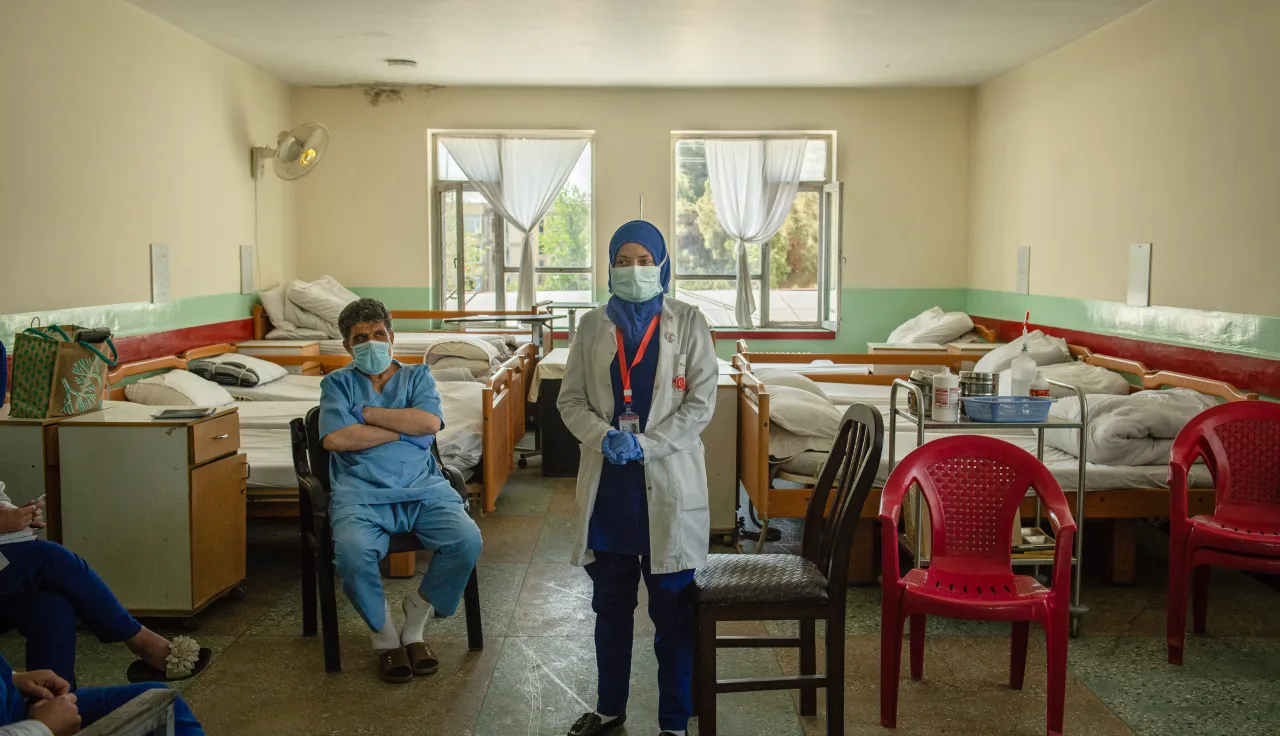
Cabul – O recente aumento da violência no Afeganistão, combinado com ataques contra estabelecimentos de saúde, ameaça reduzir ou impedir o acesso ao atendimento médico de milhões de afegãos, que necessitam desses serviços mais do que nunca com o surto de COVID-19, informou hoje o Comitê Internacional da Cruz Vermelha (CICV).
"A recente trajetória do Afeganistão nos preocupa muito. Após a esperança trazida por uma relativa diminuição das hostilidades em fevereiro e março, novamente observamos mais violência. O número de vítimas civis aumenta enquanto o país luta contra a COVID-19", afirmou Juan Pedro Schaerer, chefe da delegação do CICV no Afeganistão.
Como outros países assolados pela guerra, o Afeganistão tem um sistema de saúde sobrecarregado, que sofre com uma cobertura limitada em áreas atingidas por conflitos, com uma assistência à saúde pouco especializada e, mais recentemente, com o surto de COVID-19. Os ataques contra os profissionais e estabelecimentos de saúde, incluindo a agressão mortal em maio contra uma maternidade apoiada pela organização Médicos Sem Fronteiras em Cabul, agravam a situação.
"A COVID-19 tem desafiado as nações mais avançadas do mundo. Um país onde homens armados atacam um hospital não tem como oferecer atenção de qualidade. Vemos isso em estabelecimentos de saúde das áreas afetadas pelas hostilidades e nas prisões, onde as pessoas já têm acesso limitado ao atendimento", afirmou Schaerer.
No maior hospital do Afeganistão, o Hospital Regional Mirwais de Kandahar, apoiado pelo CICV há mais de 20 anos, a equipe continua prestando atendimento em cirurgia e obstetrícia aos feridos de guerra. Devido ao aumento dos casos de COVID-19, o estabelecimento funciona agora com capacidade reduzida, apesar das taxas quase habituais de pacientes feridos nos confrontos e de partos.
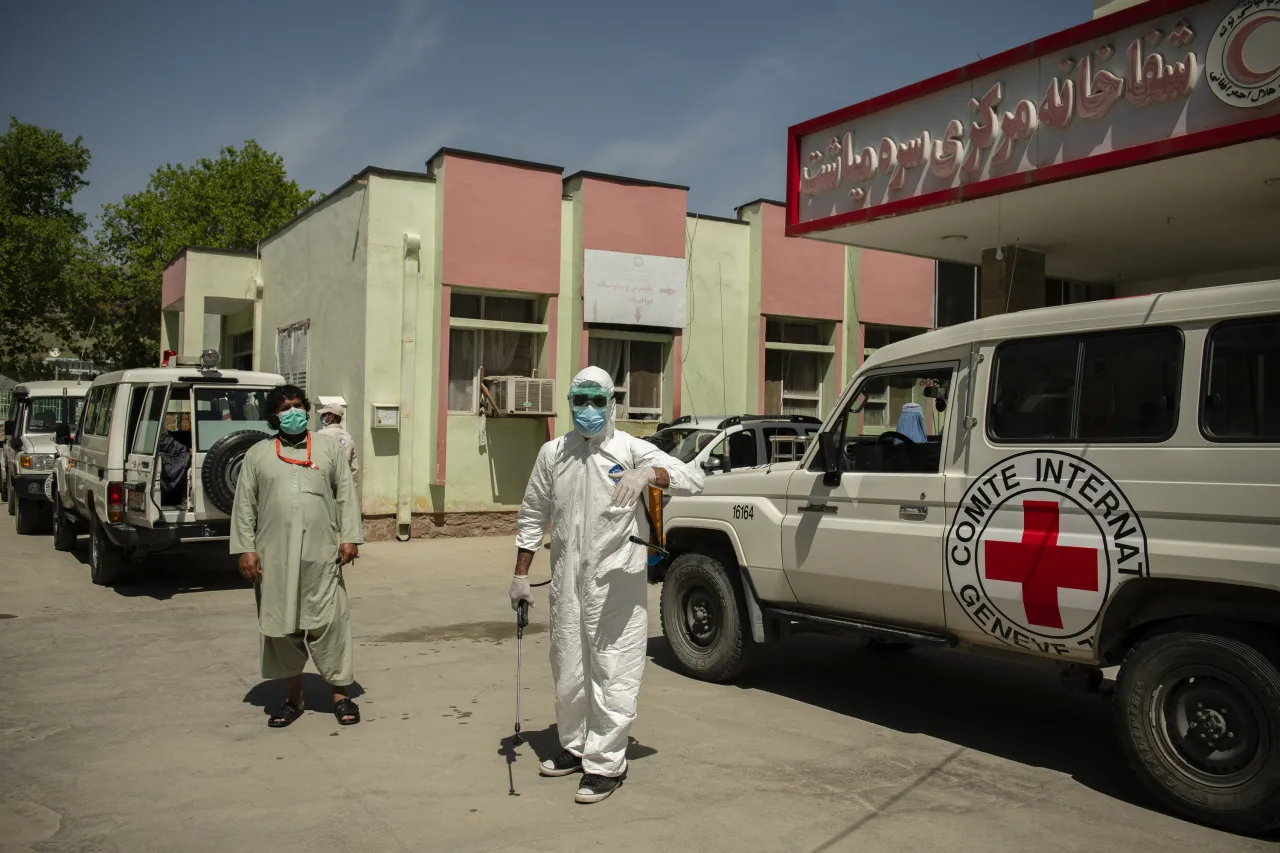
Kiana HAYERI / ICRC
Mirwais Regional Hospital is the only regional hospital servicing approximately 6 million people in southern Afghanistan. Many of the patients, especially in the surgical ward, come from areas where fighting between the Taliban and government forces continues.
Worryingly, a substantial number of COVID-19 cases in Afghanistan are health personnel, which puts more strain on the entire system. Mirwais hospital regularly faces a shortage of masks and hand gel as the outbreak disrupts logistics pipelines. As well, blood donations have decreased but the need for blood has not.
"There are some challenges like the supply pipeline that the ICRC can help with," said Erin O'Connor, the ICRC's Mirwais hospital project manager. "But getting donors to come to give blood amid COVID-19 is more challenging."
The fight against COVID-19 needs commitments from all parties to the conflict. ICRC calls to protect medical missions and strengthen health care systems in the places, like detention facilities, where such links are the weakest.
"We battle a worldwide enemy and need a country-wide agreement on how to address COVID-19," Scharer said. "As a start, full respect of international humanitarian law by all parties, without exception, is needed to protect civilians in Afghanistan."
To help reduce the spread of COVID-19 outbreak in Afghanistan, the ICRC together with the Red Cross and Red Crescent movement partners:
- Support the Kabul District Hospital of the Afghanistan Red Crescent Society (ARCS) with training, infection control, hygiene and patient care protocols, material equipment and the long-term infrastructure upgrade of electricity, water and sanitation, and waste management facilities.
- Provided 12 field hospitals and first responders with personal protective equipment (PPE) including mask, gloves, hand sanitizer and advised on surgical recommendations for the staff to operate safely in a COVID-19 environment.
- In detention places, donated PPE, contact-free thermometers, medical items and hygiene items such as chlorine, soap and detergents, and installed hand washing basins besides rebuilding and rehabilitated isolation rooms, and works to improve ventilation.
- Distributed hygiene item in our seven physical rehabilitation centres in Afghanistan to reinforce preventive measures against COVID-19 where thousands of people with disabilities are assisted.
For further information, please contact:
Roya Musawi, spokesperson, ICRC Afghanistan, Tel.: +93 794 618 908, rmusawi@icrc.org
Omarsharif Ghyasy, head of communication, ICRC Afghanistan, Tel.: +44 793 298 1946, oghyasy@icrc.org
To preview and download the latest ICRC video footage in broadcast quality, go to
www.icrcvideonewsroom.org
To find out what the ICRC is doing to put an end to attacks on health workers and patients, go to
www.healthcareindanger.org
Follow the ICRC on facebook.com/icrc and twitter.com/icrc

